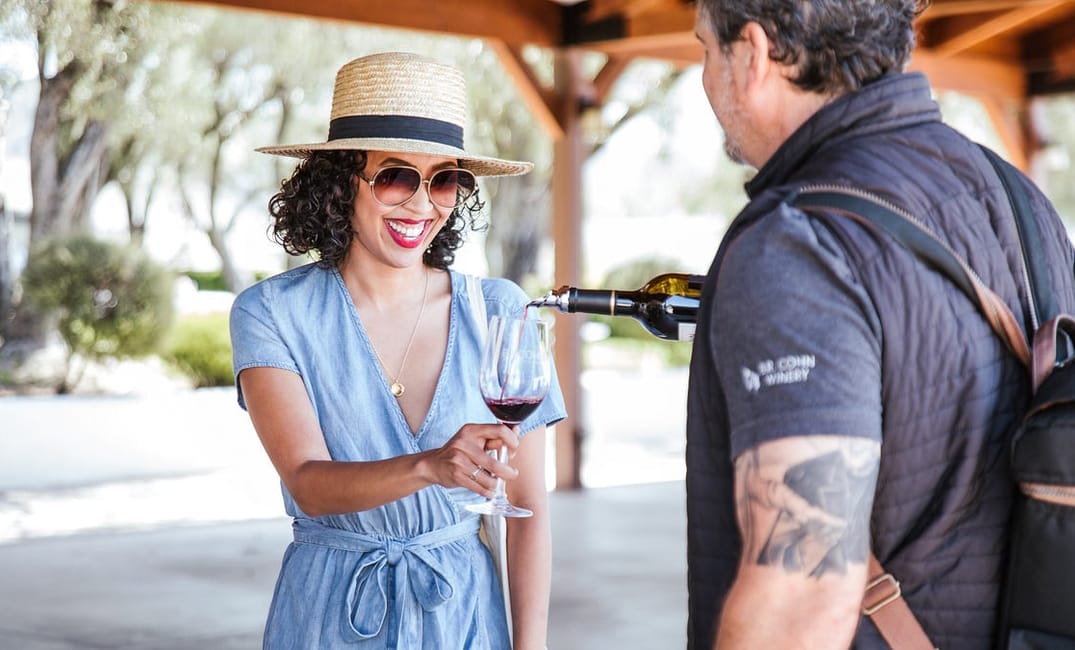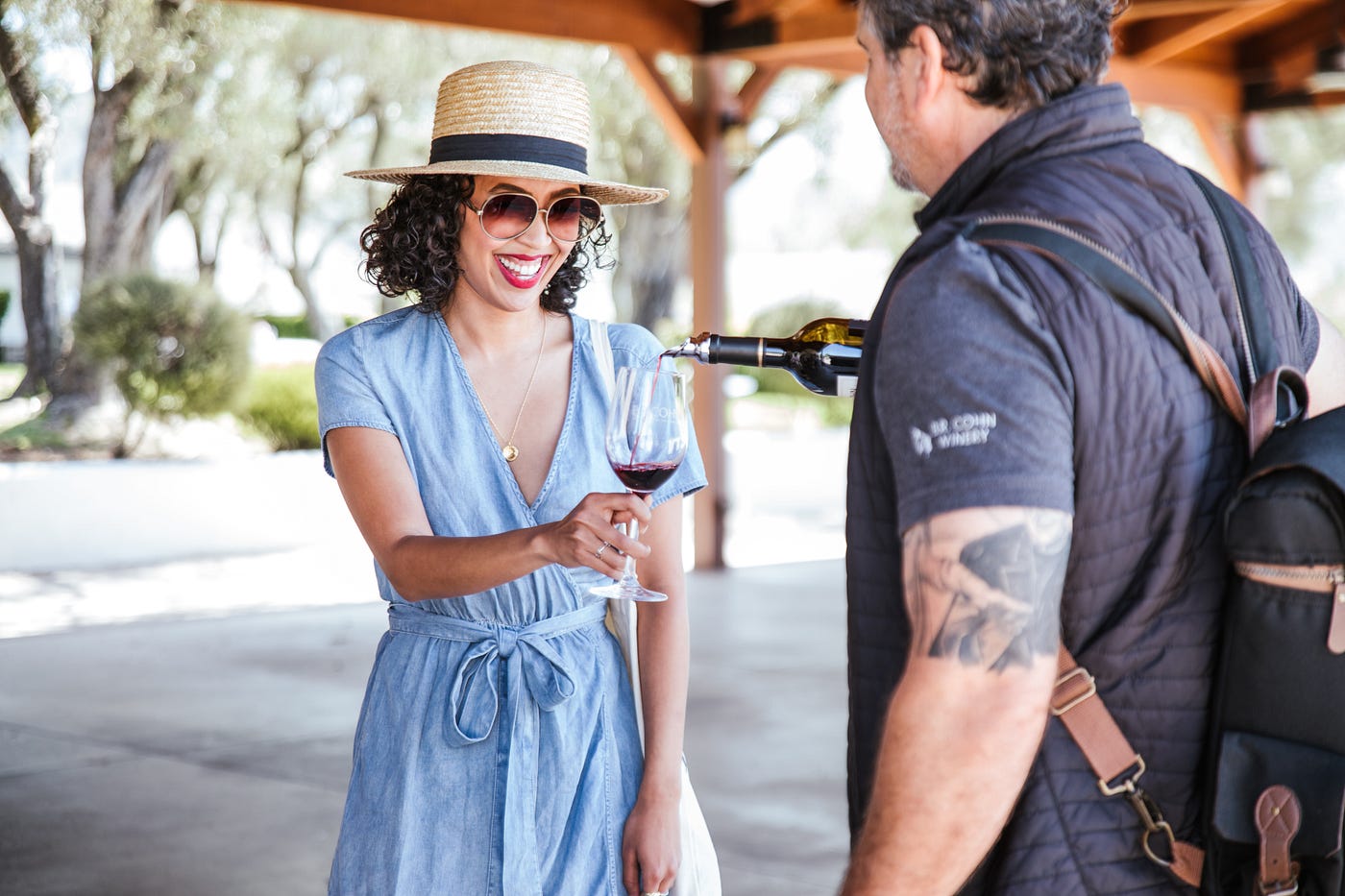
I’ve been a blogger, content creator, and influencer for nearly 10 years. That’s longer than any of my past hobbies, desk jobs, or relationships. I started blogging when blogging was still a thing. As the years progressed, I worked with more brands, I met more business owners, and I shared more stories. As a proud Black and Filipino woman, I never ran into a situation where a brand’s values didn’t align with mine, or where I was asked to compromise my own values in order to take on a brand as a new client.
That is, not until recently.
Sign up for The Bold Italic newsletter to get the best of the Bay Area in your inbox every week.
As more brands began to feel pressure to respond to the outcries of the community surrounding Black Lives Matter, one brand I recently worked with also decided to use its platform to share its thoughts. Oak Farm Vineyards, a winery in Lodi, California, posted a vague, clip-art-esque post with a typo stating that they “hope & pray for an end to all off [sic] this division & racism.” The winery stamped its post with a quote by Dr. King and called it a day.
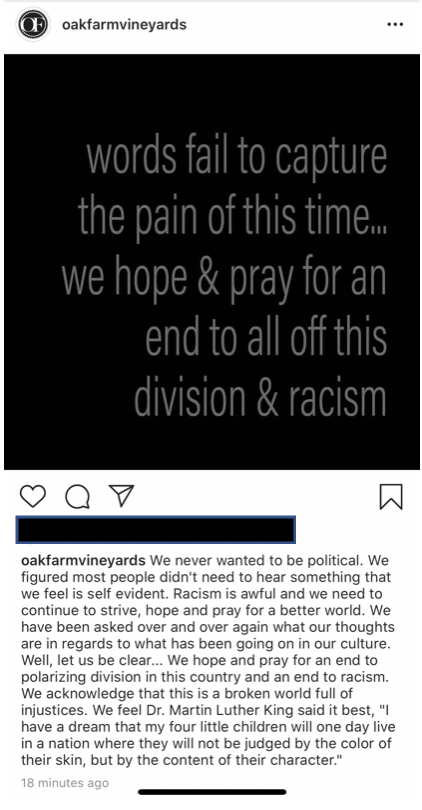
I sat conflicted for over an hour, wondering how best to address the discomfort I was experiencing from reading the winery’s post. Its statement, while well-intentioned, was problematic in that it did not materially help to solve the problem and seemed thoughtlessly dashed off. I felt angry, uncomfortable, offended, and hurt. I wanted to be thoughtful about my response. I worried that if I commented on the post right away, I would let my anger take over and my message would be lost. I wrestled with how to articulate just how personally I took the post. How do you help someone understand how to empathize with you if they’ll never experience what you are feeling or going through?
Last fall, Oak Farm Vineyards invited me to learn more about and help promote its wines as an influencer. The company gave me products in exchange for mentions of its brand on my platforms. I met the owners, Dan and Heather Panella, learned about their brand, and proudly shared their story. I championed their Barbera, a red Italian wine, and encouraged friends to support the small business during the holiday season. When Covid-19 hit, I saw that the winery was affected, and I wanted to help, so I shared another story promoting its offer on Instagram. The brand was happy to repost it, like my content, and throw me a follow.
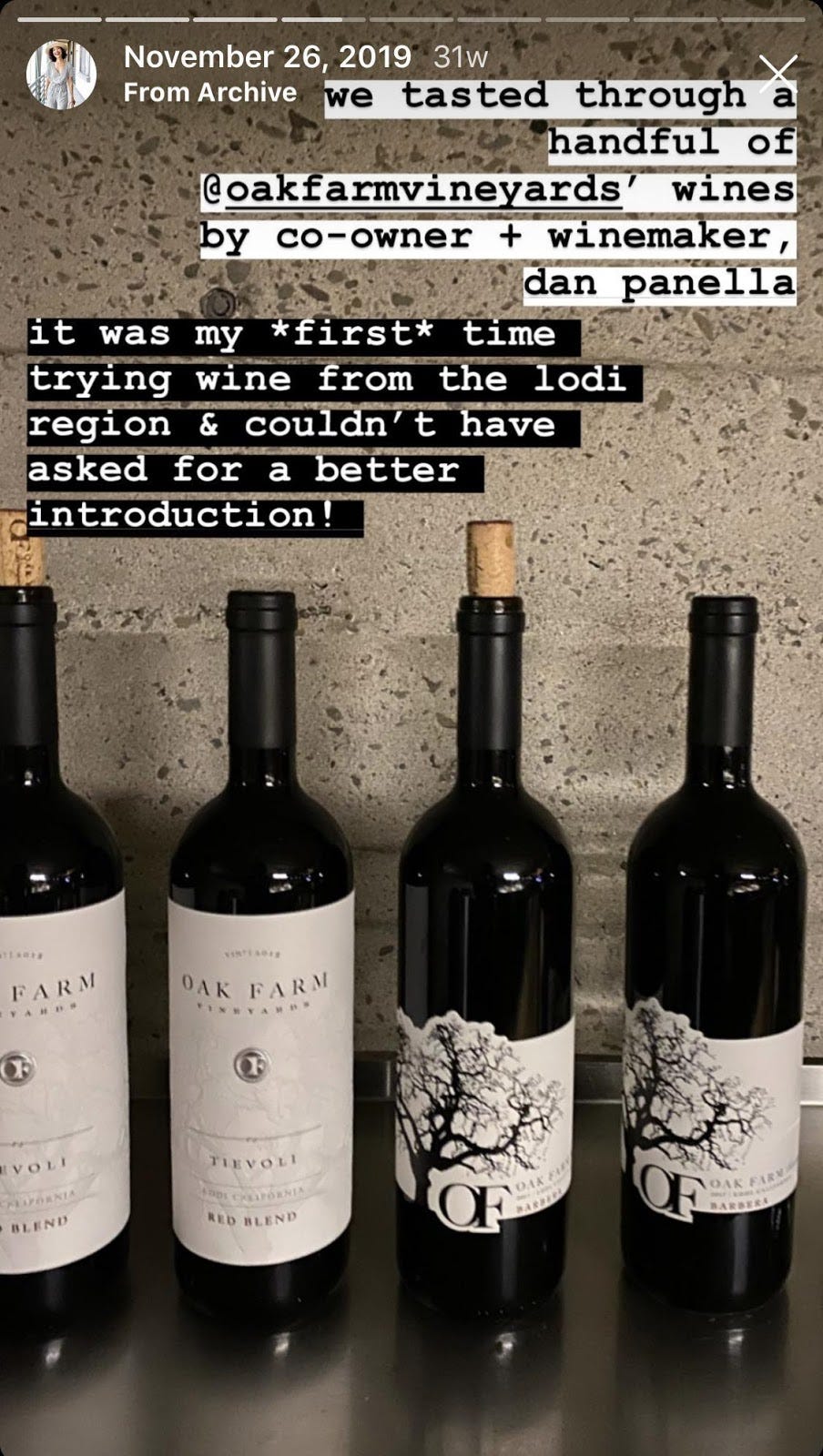
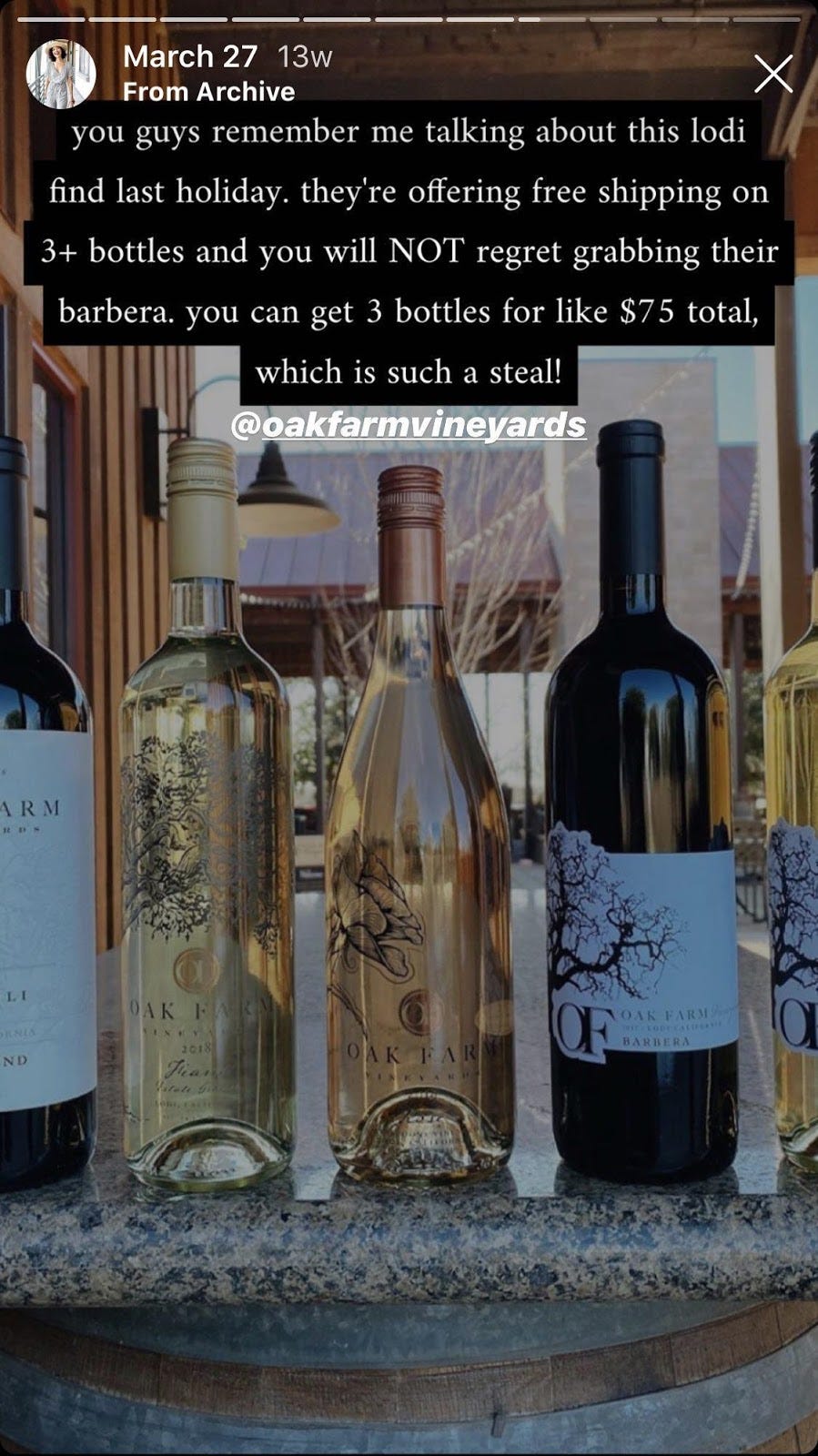
I knew that in speaking out, I would step on some toes. I knew that it wasn’t just a matter of responding to the brand — I was responding to the brand, its PR agency, and anyone else who read my words. I knew that by speaking out, there was a chance that the brand’s PR agency, which represented many other brands, would never work with me again. I knew there was a chance that my current clients, potential clients, and anyone else who disagreed with my approach might decide to cut ties with me.
There’s always a chance that people will disagree with your actions and words. But if people don’t respect you and your values don’t align, do you even want those people in your life? I don’t. I knew there were risks in speaking out, but I also knew that the greater risk was not speaking out at all.
If people don’t respect you and your values don’t align, do you even want those people in your life?
My silence would have essentially communicated to Oak Farm that I agreed with its statement, which just wasn’t true. We can “hope” and “pray” for change all we want, but until we make actionable efforts to be a part of the change we want to see, we’re just part of the ongoing problem. By staying silent, I’d be risking an opportunity to educate a brand that I’ve personally worked with about what’s at stake — the equality and betterment of literal human lives.
So, I told the company that while the sentiment of its Instagram post was appreciated, it came across as tone-deaf and lacking in substance. I felt relief as the words flowed from my fingers and out into the world.
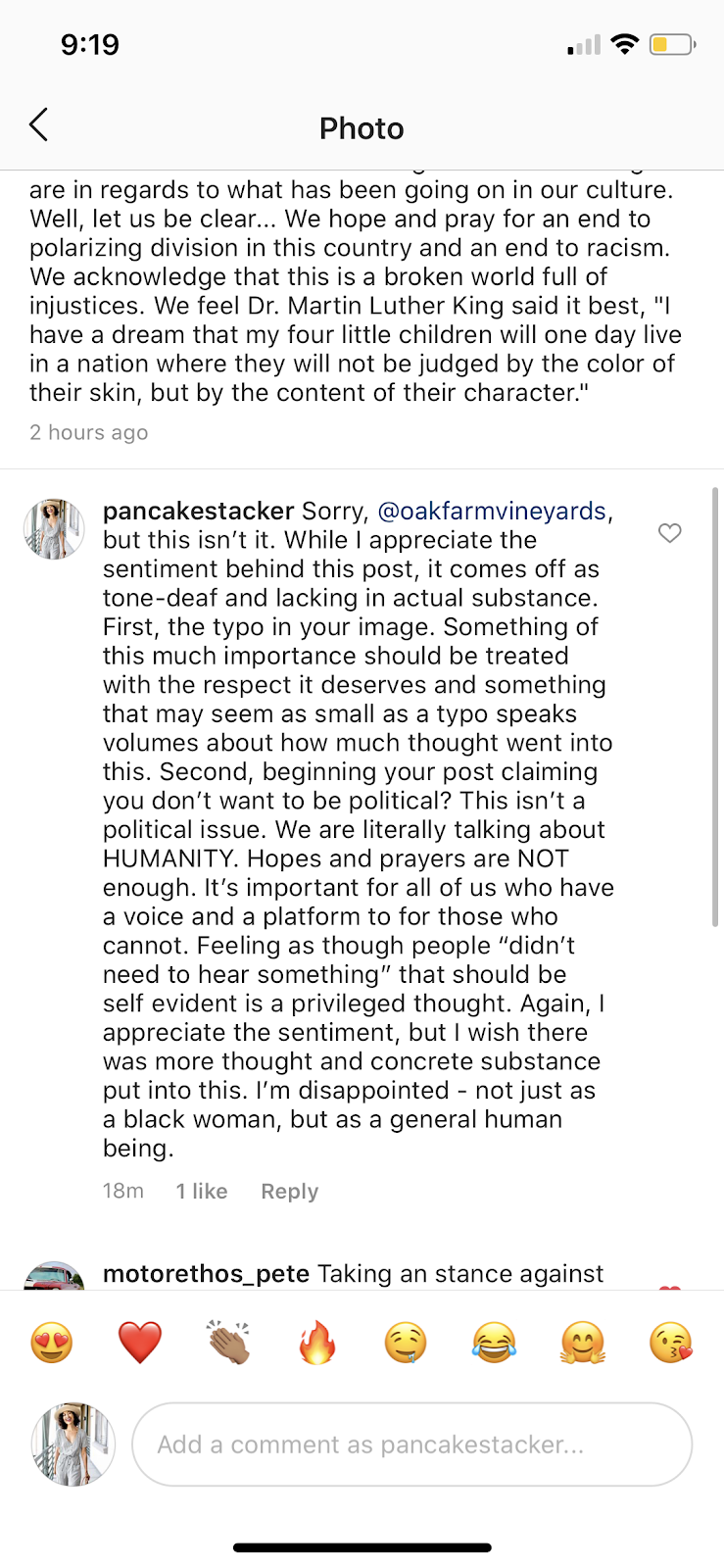
I genuinely expected the brand to acknowledge the error and hurt that it had caused, but the next day, the winery unfollowed me. I felt a bubble of anger boil inside me. A deep hurt by their disrespect. I couldn’t believe that a brand I had worked with would try to ignore my voice. Even if I had not had a professional relationship with the winery, their decision to unfollow me and respond negatively only showed me how unwilling they were to engage in discussion and self-reflection.
This isn’t even about business. This is about humanity.
The one thing you should know about me is that I don’t allow people to turn their back on the truth. So, I did what I do best. I told the brand’s story. I took the conversation they didn’t want to have and shared it with my community on Instagram and Twitter. I shared my hurt, I shared my anger, and I reminded my friends, followers, and family that we all have a responsibility to speak up if something isn’t right. There’s no time to sit by and stay silent—and, quite frankly, there never was.
A few days later, the brand responded to my comment, saying that it “didn’t sit well” with them that its post had been met with criticism and that I was “nitpicking.” They also claimed there’s “a large contingent of black people saying quite the opposite to us.” I reminded them that gaslighting and undermining my feelings wasn’t right, and that their post about racism didn’t sit right with me, a Black woman.
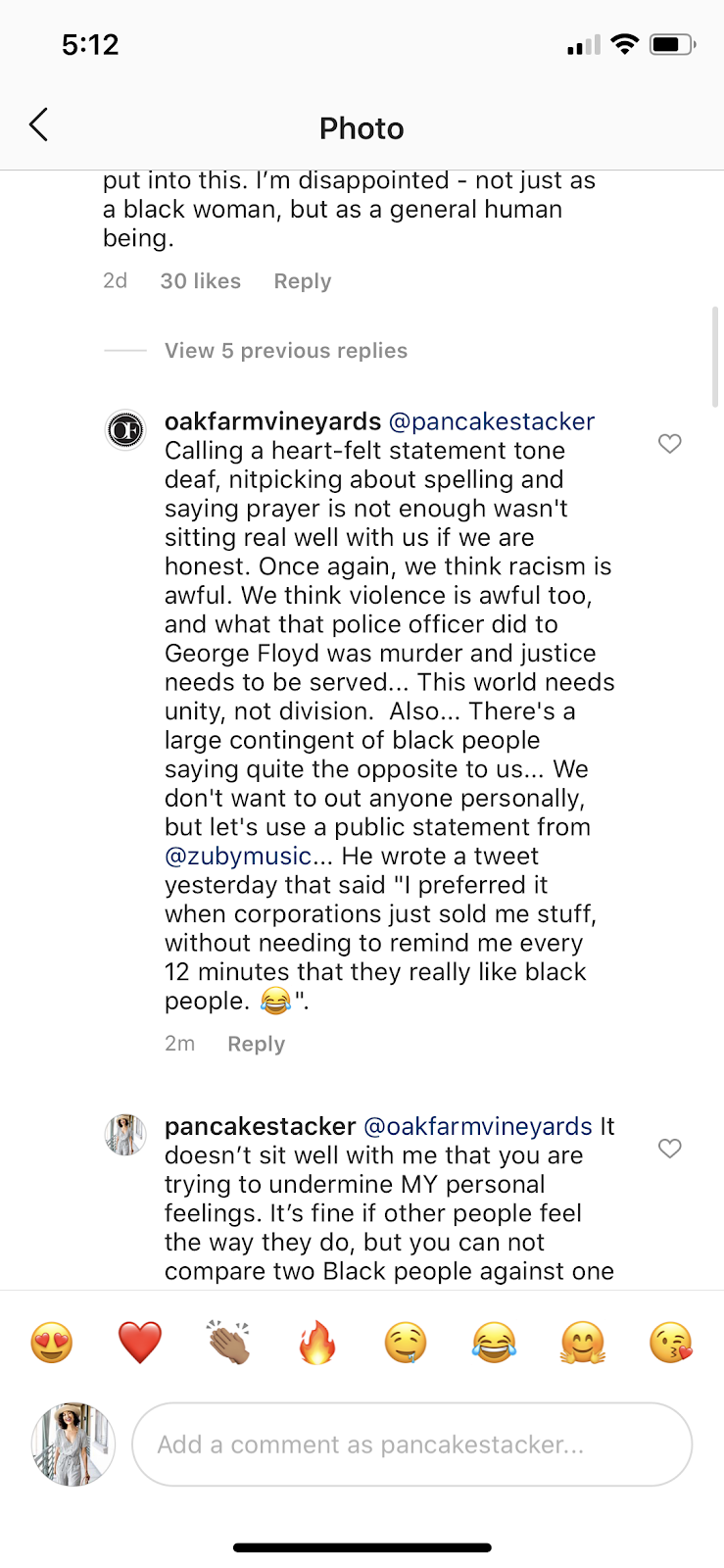
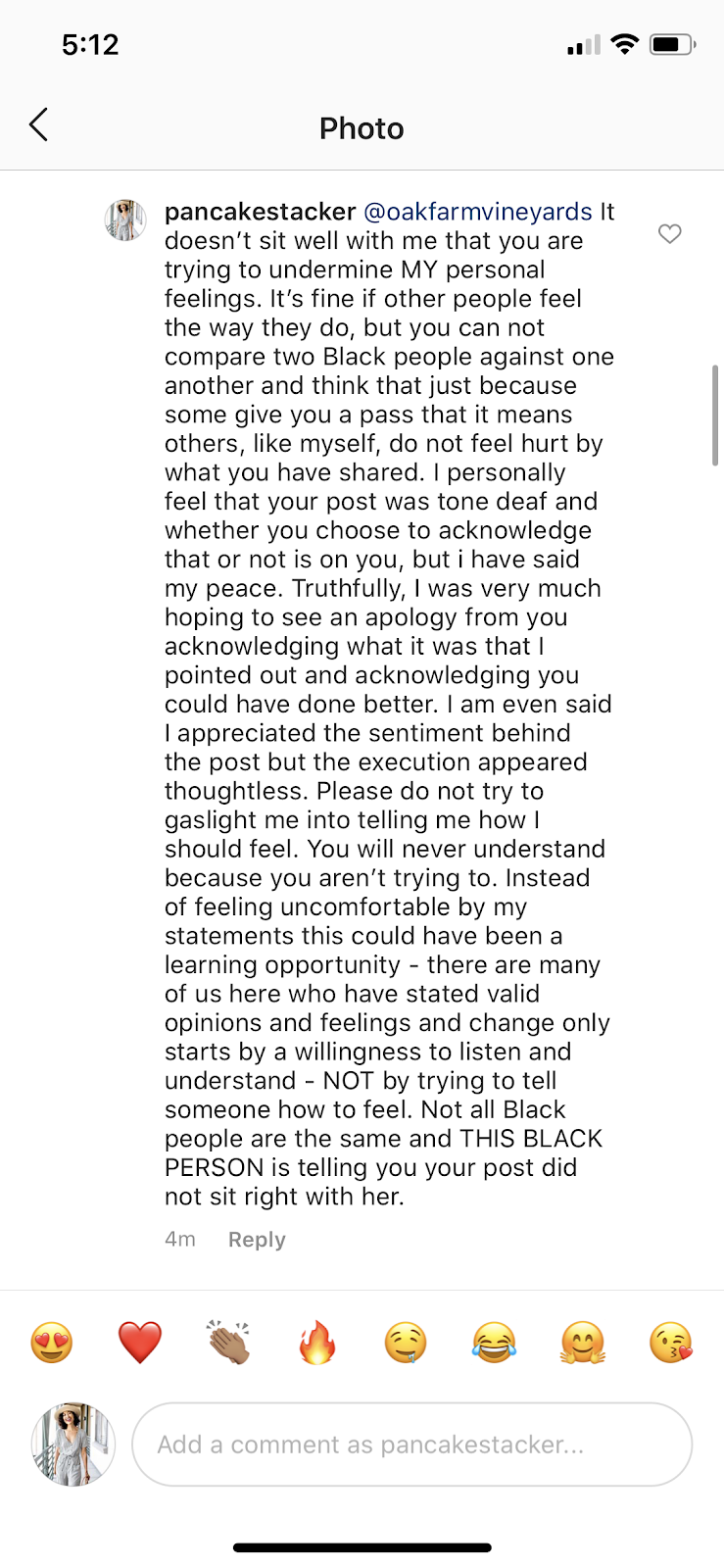
The brand’s reaction to me wasn’t its only problematic interaction. Oak Farm replied to other commenters that they “weren’t entirely sure that it’s every brand under the sun’s job to make some statement.” But isn’t it? This isn’t a topic pertaining to politics. This isn’t even about business. This is about humanity, and as a human being, why aren’t you shouting from the rooftops about the injustices another human being is facing? If I have a platform, a brand, and a business, and you want me to use it to promote you, why can’t you use yours to do the same?
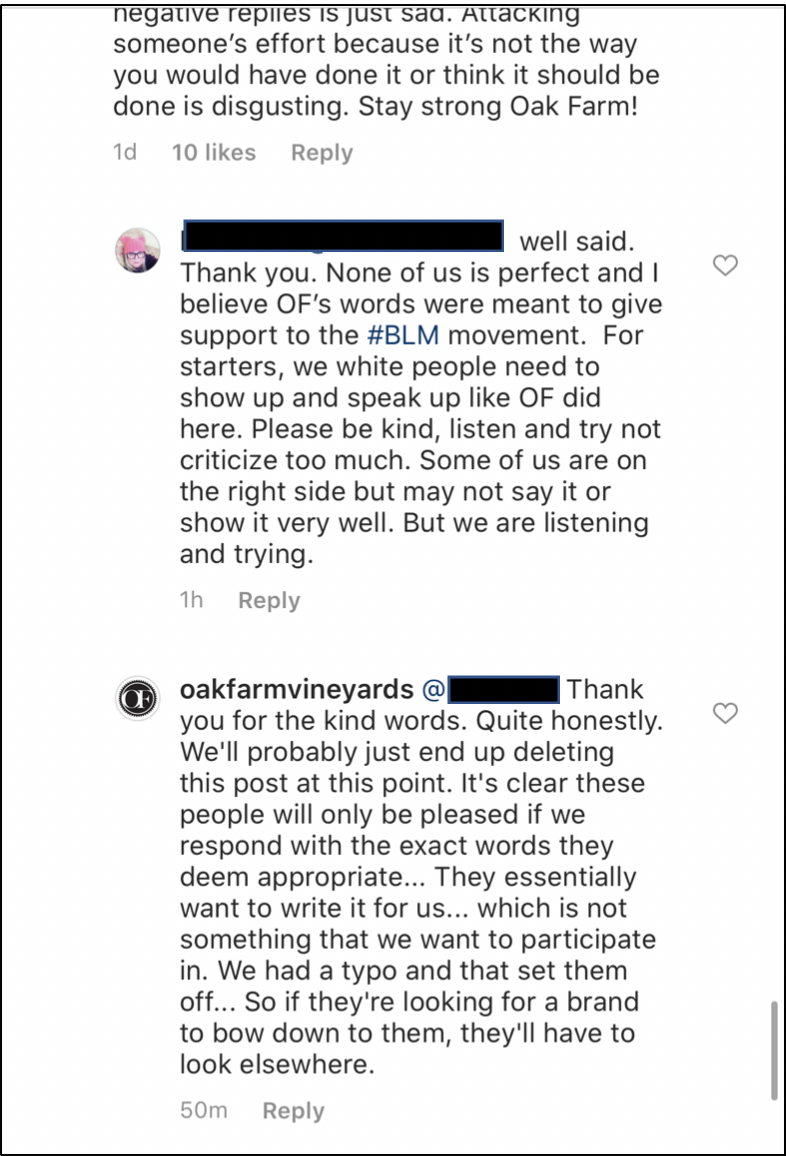
Oak Farm eventually deleted the post, but not before replying to one of its supporters that “these people” were only going to be pleased if the company responded with the exact words we wanted them to.
I’m not sure who “these people” refers to, but I’ll respond as someone who is still hurt by the winery’s actions. As consumers and business partners, we are not looking for the perfect response from brands. We are looking for accountability and true self-reflection, for brands to listen to Black people and do the actual work. Open minds don’t close their doors when the work is hard. Open minds grow and learn because they listen. Open minds are only open when they welcome in others’ voices — whether they praise you or challenge you.
I work with lots of brands, but I’m only comfortable continuing to work with those that show up for racial justice — that listen when people tell them they are hurting from a pain the brands will never experience, that don’t retreat because they feel uncomfortable, that sit in the pain and discomfort. How can we expect change if we don’t enact it? How can we progress forward if our answer is to disengage?
I use my voice to tell my own story, as well as the stories of people who don’t have a voice. I know there are people out there who are listening. But I do not use my voice to tear down, hurt, or promote the people, brands, and businesses that do not align with my values. You cannot have my voice if you would not use yours for me. First and foremost, I am a Black woman with a voice, so I use it. Use your voice and help me shout. Because if we all shout together, maybe then they will listen.
Read more:



